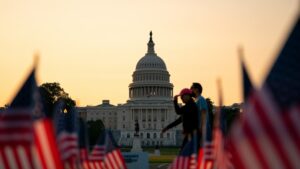
Gov. Greg Abbott of Texas has vetoed a controversial bill that sought to ban THC products, opting instead to call a special legislative session to address the regulation of these substances. The decision, announced late Sunday night just before the veto deadline, has temporarily preserved the Texas hemp industry while thwarting a key legislative goal of Lt. Gov. Dan Patrick.
Senate Bill 3 aimed to prohibit consumable hemp products containing THC, including delta-8 and delta-9 variants. Abbott’s veto came after significant political pressure from both sides of the aisle, including conservative activists who generally support Patrick’s legislative priorities. The governor has now summoned lawmakers back to Austin for a special session starting July 21, with the regulation of consumable hemp at the forefront of the agenda.
Abbott’s Rationale and Legislative Dynamics
In his statement explaining the veto, Abbott argued that SB 3 would likely face “valid constitutional challenges” and that a total ban could conflict with federal law, particularly the 2018 Farm Bill, which legalized hemp products. “Allowing Senate Bill 3 to become law — knowing that it faces a lengthy battle that will render it dead on arrival in court — would hinder rather than help us solve the public safety issues this bill seeks to contain,” Abbott stated.
The governor advocated for a regulatory framework similar to alcohol regulation, suggesting measures such as prohibiting sales to minors, requiring product testing, and empowering local governments to restrict THC product sales. He also emphasized the need for a fully funded enforcement structure to ensure public safety.
Political Reactions and Industry Implications
Lt. Gov. Dan Patrick, who had prioritized the THC ban as one of his top legislative goals, expressed his discontent on social media, criticizing Abbott’s “late-night veto” and highlighting the concerns of families affected by high-potency THC products. Patrick’s strong opposition underscores the political divide within Texas’s leadership on this issue.
Supporters of SB 3, including Patrick, argued that a complete prohibition was necessary to protect young people from high-THC products, which they described as a “poison in our public.” Patrick even conducted visits to cannabis stores and released videos highlighting what he saw as dangerous practices within the industry.
Economic and Social Context
The veto comes six years after Texas inadvertently paved the way for a booming hemp industry by legalizing consumable hemp in 2019. This legislation did not cap THC levels for derivatives other than delta-9, leading to a proliferation of THC-infused products across the state. The industry has since grown to support approximately 50,000 jobs and generate $8 billion in annual tax revenue.
Many within the hemp industry, as well as some veterans and farmers, have advocated for regulation over prohibition. They argue that consumable hemp products offer therapeutic benefits and provide an alternative to opioids for managing chronic pain and other conditions. The Texas Hemp Business Council praised Abbott’s veto, stating, “Governor Abbott showed real leadership today. Texas is stronger for it.”
Future Legislative and Regulatory Prospects
Abbott’s veto and the subsequent call for a special session signal a potential shift towards a more regulated approach to THC products in Texas. The governor’s decision has also placed him at odds with Lt. Gov. Patrick, who had threatened to force a special session if his legislative priorities were not met.
As the special session approaches, lawmakers will be tasked with crafting a regulatory framework that addresses public safety concerns while aligning with federal law. The outcome of these discussions could significantly impact the future of the hemp industry in Texas and set a precedent for other states grappling with similar issues.
Meanwhile, the debate over THC regulation continues to resonate across the political spectrum, with advocates on both sides making their voices heard. As Texas navigates this complex issue, the balance between public safety, economic interests, and individual freedoms remains at the forefront of the legislative agenda.






